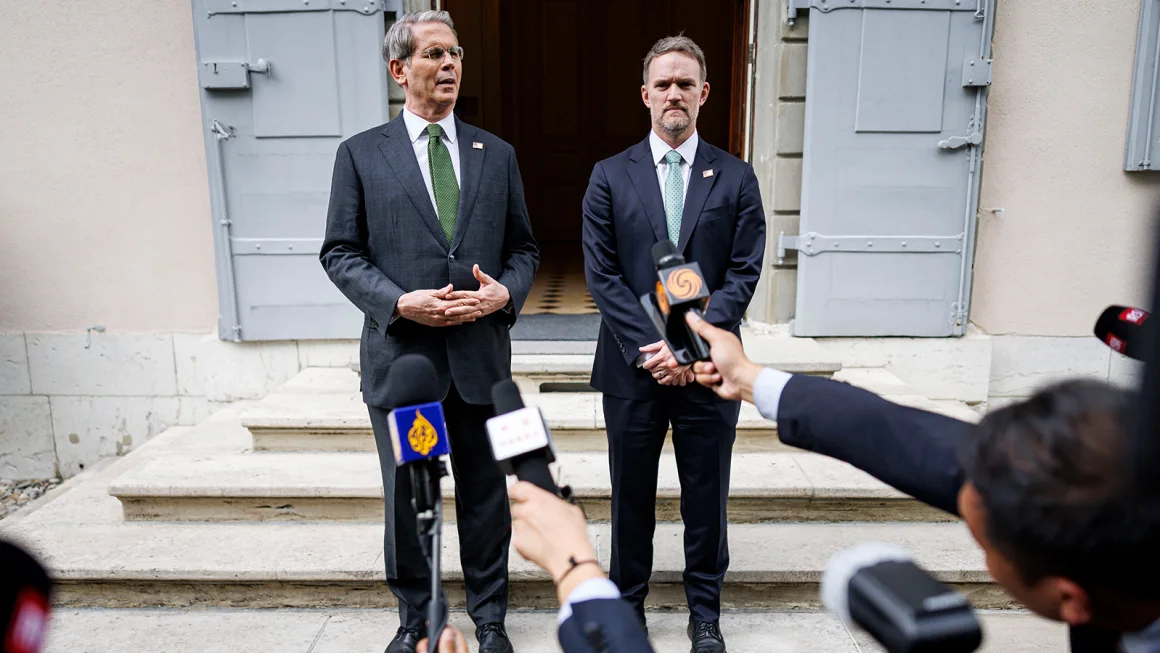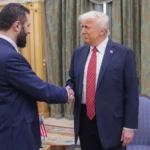The United States and China have signaled significant progress in their trade negotiations following a weekend of intensive talks in Geneva, Switzerland. While both sides have offered optimistic assessments, details remain sparse ahead of a joint statement expected on Monday.
The U.S. delegation, led by Treasury Secretary Scott Bessent and U.S. Trade Representative Jamieson Greer, struck a positive tone after talks concluded Sunday. “I’m happy to report that we’ve made substantial progress between the United States and China in the very important trade talks,” Bessent told reporters at the Swiss representative’s residence in Geneva, where the discussions were held.
Greer, standing beside Bessent, suggested that an agreement had been reached, though specifics were withheld. He underscored the urgency of addressing what he described as a “$1.2 trillion trade deficit,” calling it a “national emergency” that initially warranted the imposition of steep tariffs. “We’re confident that the deal we struck with our Chinese partners will help us to resolve, work toward resolving that national emergency,” Greer said.
Global investors responded positively to the news of progress, with Dow futures rising 1%, S&P 500 futures climbing 1.3%, and Nasdaq Composite futures jumping 1.7% Sunday night. Asian markets opened higher Monday in response to the perceived thaw in tensions.
China’s response was also cautiously optimistic. Vice Premier He Lifeng, who led the Chinese delegation, avoided using the term “deal” but described the talks as “candid, in-depth and constructive,” adding that they had “reached important consensus and made substantial progress,” according to China’s state broadcaster CCTV.
He Lifeng urged both nations to adopt a practical attitude and candid communication to resolve their differences and “expand the cake of cooperation,” highlighting the broader global impact of improved U.S.-China trade ties.
Further detail is expected during a joint Monday press conference, where both sides are anticipated to unveil the structure of a new economic consultation mechanism. Chinese Trade Representative Li Chenggang confirmed that Vice Premier He would serve as Beijing’s lead in the U.S.-China trade mechanism and that both countries would engage in regular communication, with meeting details to be jointly determined.
Despite the optimistic tone, questions remain about the actual outcomes of the talks. The U.S. had earlier levied aggressive tariffs—initially 34%, later escalating to 145%—on Chinese goods. China retaliated with 125% tariffs on U.S. exports. While the talks have seemingly de-escalated tensions, there’s no confirmation yet of a rollback or adjustment to those tariffs.
A statement from the White House on Sunday referred to a “trade deal” but included no new information beyond comments from Bessent and Greer.
President Donald Trump, posting on Truth Social, hailed the talks’ first day as “a total reset negotiated in a friendly, but constructive, manner.”
Li Chenggang hinted at a major announcement to come. Asked when the joint statement would be released, he responded with a proverb: “If the dishes are delicious, then timing is not a matter. So I think no matter when this statement is released, it’s going to be… big news, good news for the world.”
The trade war, launched under Trump’s administration, has already strained global commerce. U.S. port officials said Friday that not a single cargo vessel had departed from China in over 12 hours—a disruption not seen since the COVID-19 pandemic.
If tariffs are eventually modified, analysts believe rates may remain above a 10% baseline. For context, even the recent U.S.-UK trade deal left the base tariff intact, with only limited carve-outs.
The coming joint statement and further press briefings will likely shed light on whether the Geneva negotiations represent a turning point—or just another pause—in the ongoing trade war between the world’s two largest economies.






